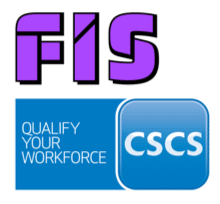
by Jane Knight | Jul 27, 2022 | Main News Feed
FIS, University of Reading, AMA Research and Barbour ABI are working together to understand how the fit-out, finishes and interiors sector can deliver better value and improve supply chain relationships. You can complete our survey here.
The £10 billion fit-out, finishes and interiors sector puts the ‘wow’ into buildings – turning structures into functional, comfortable and safe environments. Homes, shops, offices, hospitals and schools are all rendered operational through fit-out. The workforce of 250,000 provides the essential scenery and settings which shape the lived experiences of building users. If construction is indeed to be assessed on perceptions of ‘value’, then the fit-out sector punches way above its weight.
Whether it be refurbishment or newbuild, construction of the interior system is a particularly time-sensitive and complex part of the building process and relies on robust procurement. Trade body, Finishes and Interiors Sector (FIS), is looking to better understand the challenges our industry is facing, how current procurement practices work and more importantly, can be improved.
The nature of the procurement process is often identified as a barrier to change. Dame Judith Hackitt’s statement from the 2018 ‘Building a Safer Future’ Report, confirmed that ‘Improving the procurement process will play a large part in setting the tone for any construction project. This is where the drive for quality and good outcomes, rather than lowest costs must start.’
Whilst previous research has been published on mainstream construction procurement, such studies often fail to address the experienced realities of the specialist finishes and interiors sector. FIS recognises that more needs to be done to understand how procurement practices are affecting the fast-moving fit-out industry.
Reaching into the Supply Chain
As an initial phase, the group are inviting all in the supply chain to take part in this study and are keen to give a voice to all those doing the work to better understand how procurement practices in the finishes and interiors sector are working and need to evolve.
The research has been commissioned by FIS as part of its focus on supporting positive transformation within the sector. The aim is to benchmark current practices and explore how procurement impacts effective delivery.
Data will be gathered in the strictest of confidence and aggregated to support the wider research. All those responding will be issued a final copy of the report.
FIS Chief Executive Iain Mcllwee stated: “The key to unlocking the potential of construction and unleashing the culture change that we need in the finishes and interiors sector sits squarely in procurement. That isn’t a revelation. Virtually every report written about the sector has raised concerns about procurement practices that facilitate a race to the bottom and create adversarial relationships.
Our sector is complex and fast moving, too fast at times. To work out where we are going we need to be honest and open about where we are at, understand the real time pressures we are creating, the pinch points, to take stock, benchmark and vitally, to understand from all parts of the supply chain how we can improve.
The regulatory, environmental, commercial and moral drivers for change have never been stronger and this research is an exercise in active listening, an opportunity to give voice to all in the supply chain and the start of a practical call to action for positive change.”
Professor Stuart Green from the University of Reading commented: “Procurement is undoubtedly of central importance to construction performance. But despite many well-intentioned previous initiatives, few have bothered to access the reality of how procurement operates within the finishes and interiors sector. We are seeking to redress this imbalance by collecting evidence from those directly involved. In striving to improve procurement practice, it is vital to establish the baseline from which we are starting. Wishful thinking alone will not deliver the sustained improvement in practice which is undeniably necessary.”
You can access the survey here.
For further information or for any questions please contact FIS at info@thefis.org or call 0121 707 0077.

by Clair Mooney | Jul 14, 2022 | Main News Feed, Material Shortages
A statement from Build UK Chair Paul Cossell
As an industry, we are currently facing inflationary pressures not seen in the UK for 40 years. The latest update from the CLC Product Availability Group confirmed that average inflation for products and materials this year has been around 23%, with further increases expected, particularly for energy intensive products.
We know that cost escalation, closely followed by a lack of skilled labour and material shortages, is now the key issue for businesses across the supply chain. As we did during COVID‐19, Build UK is bringing its members together to coordinate a collective response. With the support of Wedlake Bell LLP, we have published comprehensive guidance on Managing Price Inflation, which includes advice on fluctuations clauses, negotiating new and existing contracts to take inflation into account, and how to mitigate its impact on projects. Most forms of contract have standard provisions for sharing the risks associated with price volatility, which should be used appropriately and fairly and in a spirit of collaboration.
With businesses across the industry under pressure, we all need to play our part. We often talk about the better industry we want to see, where risk is allocated fairly and projects are delivered more efficiently. How each of us responds to the current challenges will determine how quickly we can realise this vision.
An enduring commitment to prompt payment must remain a priority, and a number of Build UK Client and Contractor members are reducing their payment terms to support the cash flow of their suppliers. The Welsh Government has provided advice to its public sector bodies on how to manage the unprecedented pressures on materials, and Build UK will be meeting with key Government departments to discuss a collaborative approach to managing inflation to the benefit of all parties.
We learned the value of collaboration during the pandemic and showed that we perform better as an industry when we work together. Where businesses, programmes or projects are struggling due to materials shortages and price inflation, we need to discuss the issues openly and find creative and innovative ways to mitigate these risks in the interests of our clients and the supply chain.
I firmly believe that by doing the right thing over the coming weeks and months, we can achieve our shared ambition of being a productive and profitable sector.

by Clair Mooney | Jul 9, 2022 | Main News Feed, Skills, Transformation
Public consultation launched by the Institute for Apprenticeships and Technical Education (IfATE) on planned new employer-focused approvals system for level 3 technical qualifications.
IfATE want to hear from employers on their proposals to approve the next generation of technical qualifications. The consultation runs from 30 June until midnight on 10 August.
Why employer views matter
A truly integrated skills system brings employers (or their representatives) into the heart of product design, ensuring that employers’ skill needs, across occupations, can be fully understood and met. IfATE share the Department for Education’s (DfE’s) ambition that, in future, the qualifications landscape should be streamlined, offering clear career progression opportunities and giving confidence that qualifications are high quality.
A fundamental part of this will be IfATE’s employer-led occupational standards, alignment to which ensures that students are gaining the knowledge, skills and behaviours employers tell us are needed to be competent in an occupation. The occupational standards are presented in the IfATE occupational maps; these underpin their work, setting out the occupations that can be accessed through technical education. This is an opportunity to share your views and support IfATE to achieve their ambitious plans by helping them shape the approvals process for qualifications submitted as part of the revitalised technical education landscape.
You can access the consultation via this link: https://www.instituteforapprenticeships.org/reviews-and-consultations/consultations/post-16-consultation/. For any questions in relation to this consultation, please contact Ifate.POST16@education.gov.uk

by Clair Mooney | Jul 8, 2022 | Building Safety Act, Main News Feed
FIS Technical Director Joe Cilia will be taking part in a seminar focussing on fire door compliance and their surrounding supporting constructions. This seminar is a collaboration between Selo | Riser doors & Concealed frame doorsets, Knauf and FIS, to help the whole industry progress.
Understanding the issues and interface between the supporting structure, and the fire doors is key for a compliant installation, yet things can be missed especially in the construction phase when temporary doors are installed.
The event is being held on 14 July and can be attended in person, or online. For more details and to register visit https://selo.global/seminar-doors-walls-under-review/

by Iain McIlwee | Jul 7, 2022 | Building Safety Act, Main News Feed, Skills
Following the Grenfell Tower fire, FIS has been working at the heart of Working Group Two (WG2), established as one of the Competence Steering Group (CSG) working groups to look at the competence of those installing fire safety systems. This remit subsequently expanded to cover all installers working in construction and the built environment.
WG2 has recommended that the industry should adopt a framework for all the installer sectors working on in-scope buildings that can be applied to other project types. The framework will consist of:
1. Accredited third party certification of companies
2. Level 2 or 3 qualifications for individuals
3. A card scheme such as, but not limited to, the CSCS
4. CPD refresher training and the maintenance of individual skills
5. All installers have a core knowledge of fire safety in buildings – training to be standardised and made mandatory
In line with these recommendations, WG2 has completed the first phase of its work benchmarking the existing competence arrangements of six pilot installer sectors which have the potential to significantly impact on life safety. The six pilot sectors are:
1. Domestic Plumbing and Heating
2. Dry Lining
3. Fire Detection and Alarms
4. Fire Stopping Specialist
5. Rainscreen Cladding
6. Roofing
The objective of ‘Pilots – phase one,’ was to establish the current competence arrangements, compare them to the WG2’s
recommendations and BSI Flex 8670: Core criteria for building safety in competence frameworks – Code of practice and identify
any gaps.
These Pilots have been completed and WG2 will now move to phase two and the six pilot installer sectors will reconvene with their own Chairs and Terms of Reference, to develop their sector-specific competence frameworks to meet the recommendations set out in Setting the Bar. This work is expected to last between six to nine months with each sector developing a timeline and implementation plan for addressing the shortcomings.
FIS has helped to assemble a working group to focus on Dry Lining, with the initial meeting of the Working Group Chairs scheduled for September. The organisation is providing support to this group to link to the work around firewalls identification and labelling and ensure that competency frameworks developed and the processes, support required to deliver the required level of competence are practical and to identify any obstacles to systemic success.
FIS CEO Iain McIlwee commented: “The Building Safety Act is here and we need to ensure that we have robust processes to meet the exacting requirements. Competence is at the heart of it and we looking forward to using this pilot to pull together a lot of hard work that has been put in by members and particularly our Skills Board to ensure that we don’t just know what good looks like, but we know how to get there. This is a great opportunity to show that the sector is stepping up.”
The latest report Working Group 2 report which provides more context is available here – if you are interested in finding out more about this work and getting involved in the pilot group email iainmcilwee@thefis.org
Find out more about the FIS Competency Passport system here
Find out more about the Building Safety Act here

by Clair Mooney | Jul 5, 2022 | Main News Feed
The Construction Industry Joint Council (CIJC) has completed negotiations with trade unions GMB and Unite the Union and reached agreement on a 5.0% increase in all pay rates, which will take effect from Monday 25 July 2022. Non‐taxable elements of pay, such as travel and subsistence allowances, will also increase,
The Construction Industry Joint Council (CIJC) Working Rule Agreement – sometimes referred to as ‘The Pink Book’ – is an agreement between employers and Trade Unions setting out terms and conditions, including national pay rates, that are applied in principle by ‘adherent bodies’ and others across the industry. The aim of CIJC is to help avoid industrial disputes, and simplify the process of negotiating terms between employers and workers. In addition to standard rates of pay, not taxable expenses such as travel and accommodation costs, are incorporated into the agreement.
FIS is represented and the Board were consulted and fed vies in via our membership of Build UK. Other organisations involved in the negotiations include Civil Engineering Contractors Association (CECA), Home Builders Federation (HBF), National Access & Scaffolding Confederation (NASC), National Federation of Builders (NFB), National Federation of Roofing Contractors (NFRC), Painting & Decorating Association (PDA), Scottish Building Federation (SBF) and Trades Unions Unite the Union and GMB.







